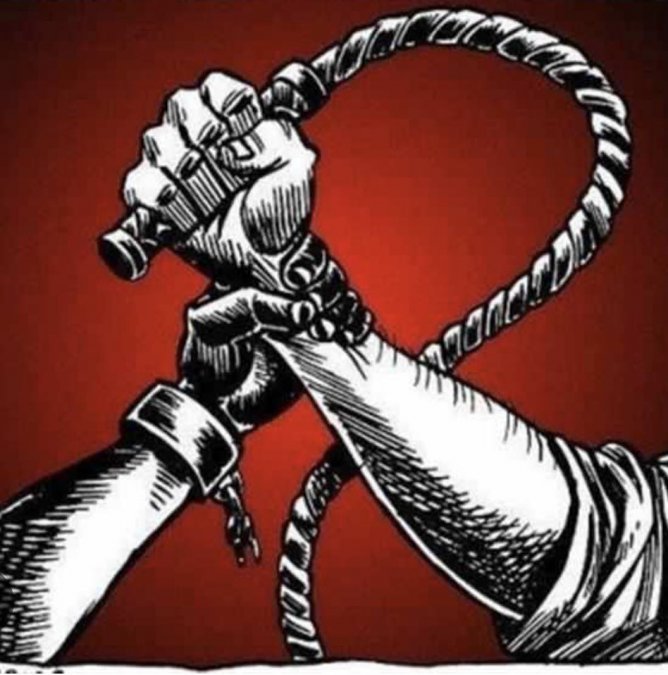The Power of the Powerless: A Way Out of Despotism
The Power of the Powerless: A Way Out of Despotism. According to Iran Gate, how does life unfold in the land of lies? What leads people to endure deceit, hypocrisy, and injustice? How do people become unpaid tools for implementing lies, hypocrisy, and injustice in society? How do the citizens of a country become compliant and submit to the rules of the ruling game?
Especially a regime based on ideology, a regime that sacrifices its people for the continuation of its rule. It doesn’t just ask people to go to war; it involves them in all superficial and minor issues so that they ultimately become servants of the regime. Many people do not realize this exploitation because the tools the regime uses seem trivial and superficial, but in practice, they are very impactful and gradually become part of the regime’s legitimacy puzzle.
Another point is the use of religious celebrations and collective rituals by the regime to achieve its goals. It mobilizes all available tools and resources in the country so that people participate in these public norms. By doing this, it puts pressure on protesting citizens who are indifferent to these issues, saying, ‘Look, look, the people are with me, and you have become agents of foreigners and enemies.’
Václav Havel writes in his book The Power of the Powerless that the post-totalitarian system turns everyone into tools of reciprocal totalitarian action, or social auto-totalitarianism, by pulling everyone into the power structure. In this 164-page book, he explains that the profound difference in the nature of the power in the system he introduces has led him to seek a more suitable term for their system, which he calls post-totalitarian.
That is, a totalitarian system fundamentally different from classic dictatorships and our usual perception of totalitarianism, something beyond that, something beyond despotism and dictatorship, a phenomenon that has outdone all totalitarian and dictatorial regimes.
Havel refers to the presence of ideology in this post-totalitarian system, stating that ideology becomes a tool for internal communication within the power structure and ensures the internal cohesion of the regime. In his view, ideology grips power and becomes a tool for oppression and exercising power in the country. According to Havel, ideology is indeed one of the pillars of the regime’s structural stability and durability.
Now, why the superstructure? Because, according to Havel, ideology gradually becomes a tool for this system to draw people to the ballot box, participate in ceremonial marches, justify actions, shortages of goods, and other national problems. In this way, everything seems fine and bearable to the public. There’s no news of lies, injustice, or corruption because ideology is supposed to have the final say and also grants legitimacy to the regime. But what is happening in the system’s foundation?
The foundation of the system is filled with lies, corruption, patronage, dual lives, and wealth accumulation. This is where Havel says this structure will endure as long as people are willing to live under the roof of lies. Until then, the people of this land, who are living with the post-totalitarian system, deceive themselves into thinking they are living.
But what kind of life? A fake life. However, as Havel puts it, a day will come when the grand and majestic facade of the regime will crack, revealing its true, weak, and vile foundation. At that time, it will become clear to the general public how deceitful and destructive this regime has been to people’s lives.
That’s why, in such a system, truth and reality are suppressed every day and every moment, so that the main pillar of the regime, which is lies, takes longer to crack and be destroyed. The Power of the Powerless was originally Havel’s proposal for writing essays on the topic of power and freedom. The plan was for Polish and Czechoslovak writers to write in response to Havel’s essay, which would later be published.
These events, which occurred in 1978, did not come to fruition, and only the writings of the Czechoslovak writers were fully organized. A year later, when Havel was arrested, other writers decided to publish his essays. This book also includes nine essays by Havel among the main writings of Czech authors.
Overall, and in summary, the book The Power of the Powerless deals with the ethics of life, Czechoslovak communism, politics, and governance. But don’t be afraid of any of these topics, as Havel’s writing is very straightforward and directly addresses the topics of interest without any complexity.
With all these explanations, if you want to know what a country with a post-totalitarian system looks like and how much it resembles or differs from where you live, read this book.

